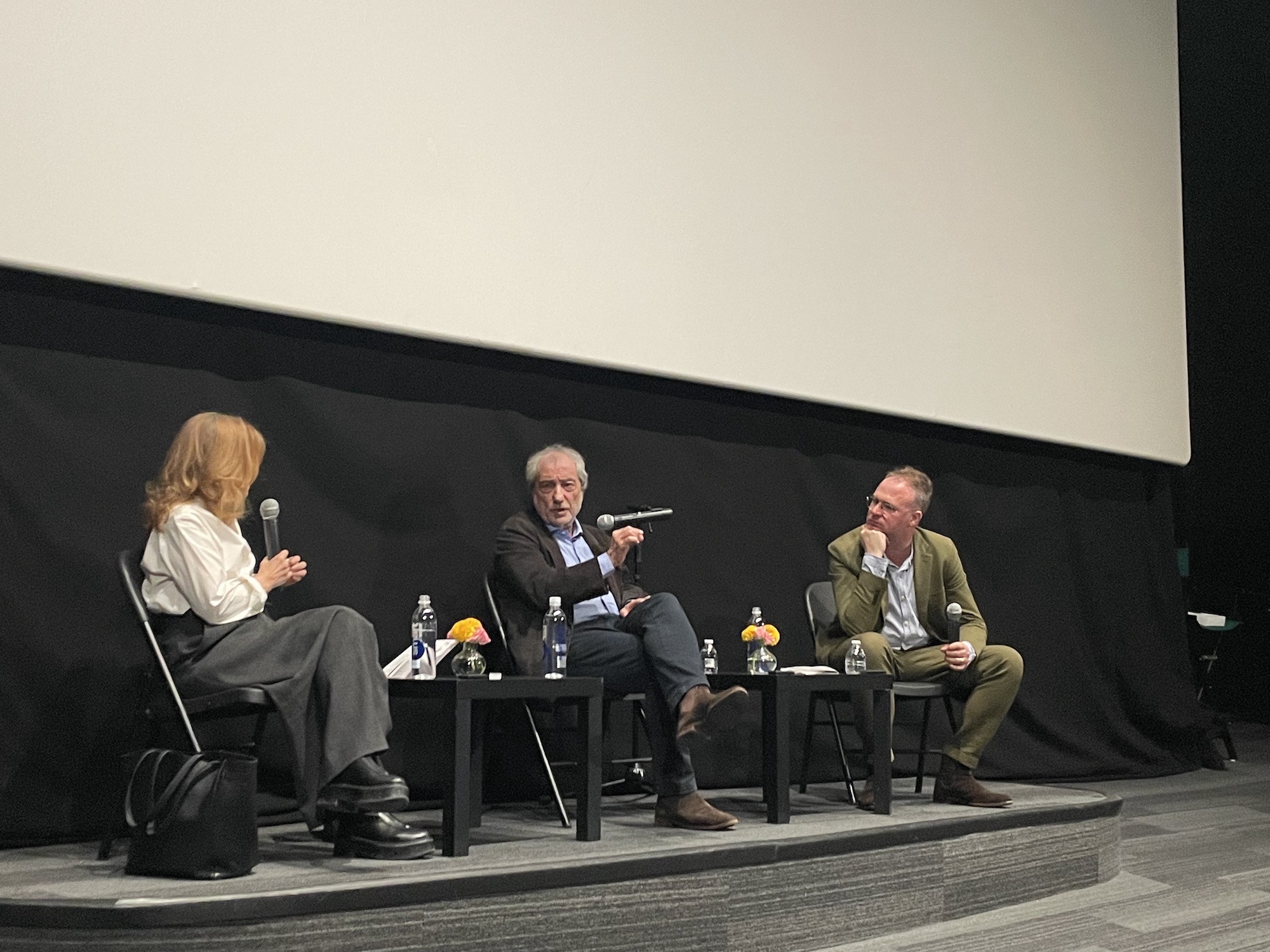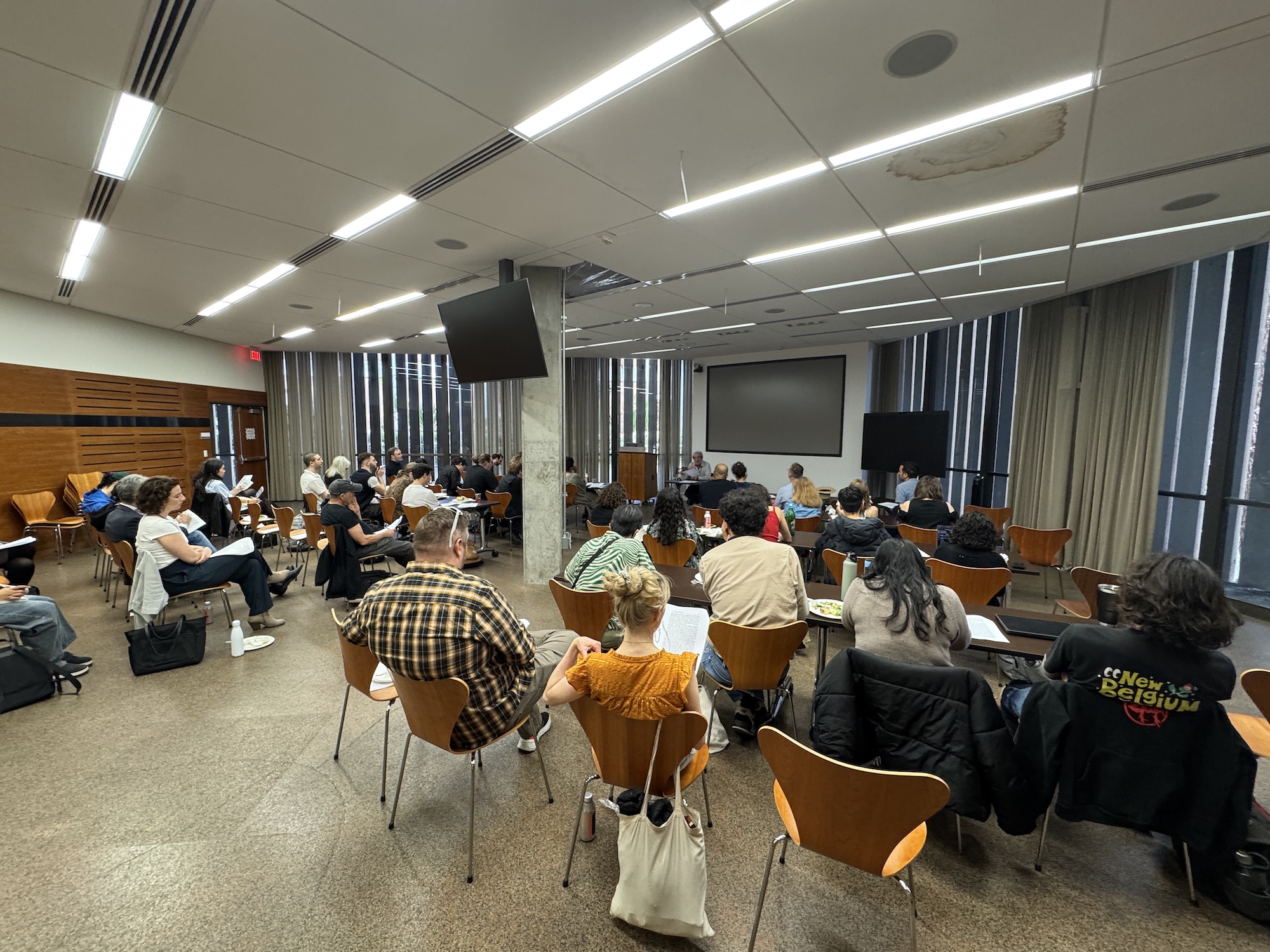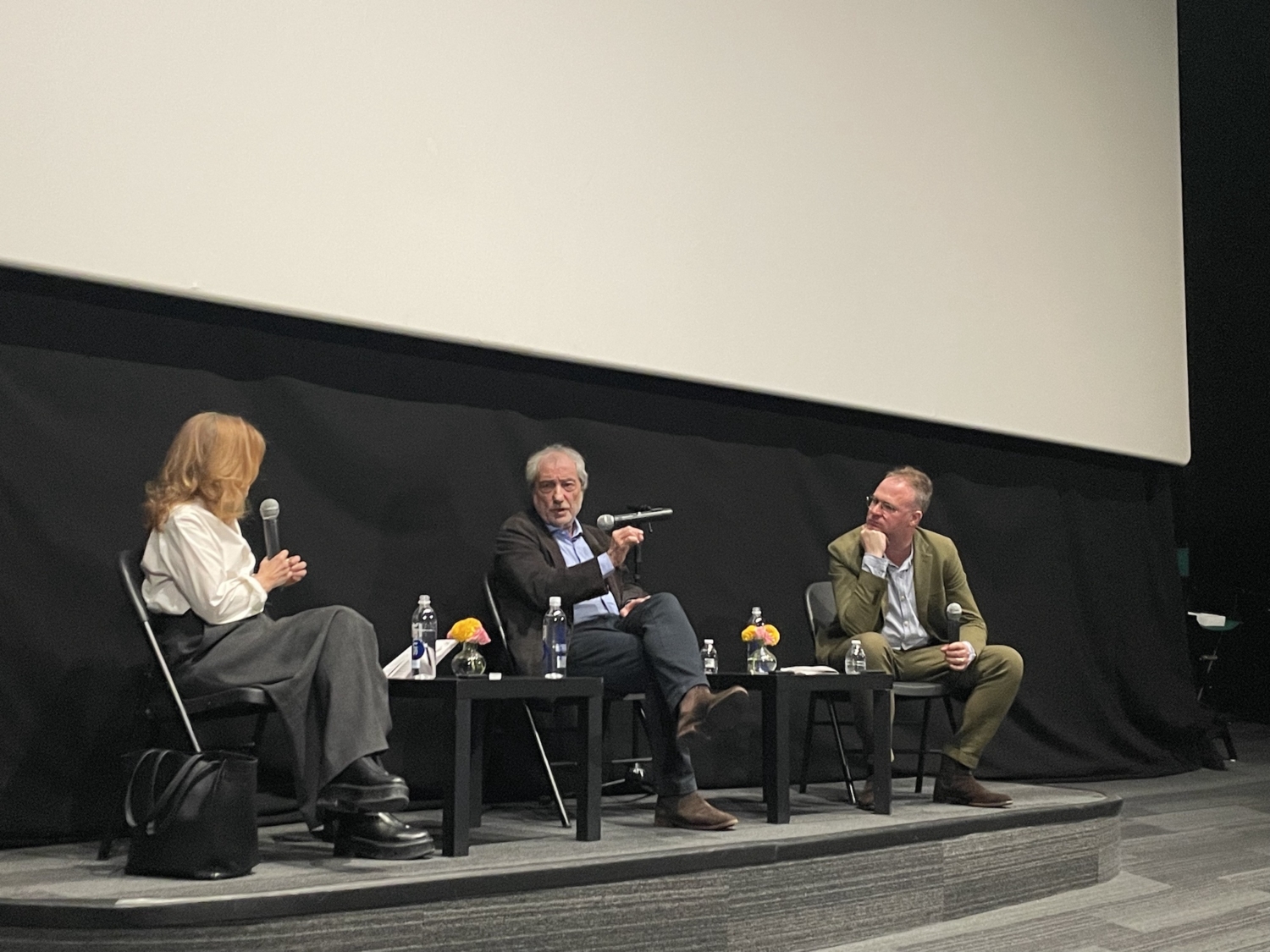Bedari Kindness Institute
On February 26-27, the UCLA Bedari Kindness Institute (BKI) and Initiative to Study Hate (ISH) welcomed Adam Phillips, renowned psychoanalyst and bestselling author of many critically acclaimed works, including “On Kissing, Tickling, and Being Bored: Psychoanalytic Essays on the Unexamined Life” (1993), “On Kindness” (with Barbara Taylor, 2009) and, most recently, “On Giving Up” (2024).
During his visit, Phillips gave a lecture entitled “On Kindness” at the James West Alumni Center, led a seminar on fellow psychoanalyst Christopher Bollas’s essay, “The Transformational Object” at the Young Research Library, and sat down for a conversation, “On Kindness and Hate,” with UCLA Professors of English David Russell and Mona Simpson at the Landmark Theater in Westwood (hosted by the Hammer Museum). Along with BKI and ISH, this event series was co-sponsored by the UCLA Department of English, the UCLA Department of Comparative Literature and the Hammer Museum.
In his lecture, “On Resistance,” Phillips began by explaining that psychoanalysis is, at root, the study of resistance and more specifically the struggle of the mind against itself. Psychoanalytic explorations represent a long process of understanding how we resist our own desires and fears, getting to the heart of what we are unwilling or unable to confront within ourselves.
In his virtuosic unraveling of human psychic processes, Phillips highlighted the fundamental connections between the way in which we resist in our own minds and how we act out against one another. He further emphasized that in order to confront ideologies like fascism and xenophobia, we must understand them, and in order to understand them, we must be willing to examine what they purport to offer to their followers. He observed that these political movements offer some form of pleasure and what he called “self-recognition” to their followers. In order to resist them effectively, we have to be able to pinpoint honestly why so many do not resist them, and think more about how to re-channel the underlying desire to belong.

Phillips continued to probe these issues the following day. UCLA students, researchers and faculty gathered in the Young Research Library for a discussion of Bollas’s concept of the “transformational object.” In layman’s terms, a transformational object is a person, place or thing that we identify as a potential catalyst for transformation within ourselves. And because we are always seeking self-transformation, the quest for such objects dominates our entire lives. Our earliest transformational object is, of course, our mother, whose inevitable inability to satisfy our desires perfectly and completely is what initiates our search. As Phillips pointed out, this concept may help us understand the irrational, narrow and even violent impulses that characterize organized misogynist movements. As before, this understanding is what allows us to counter effectively such ideologies, and to intervene in situations where especially adolescent boys are radicalized by narratives that play into their sense of frustrated need.

Phillips’ final appearance was before a packed audience at the Landmark Theater in Westwood, in collaboration with the Hammer Museum. Appearing in BKI’s ongoing “Compassionate Conversations” series, he was joined in conversation with Mona Simpson and David Russell, two colleagues from the UCLA English Department, on the theme of “On Kindness and Hate,” Phillips focused on kindness as a source of pleasure, one which we tend to deny ourselves all too often. By extension, cruelty towards others is a form of cruelty towards ourselves, an expression of what Sigmund Freud termed the “death drive,” the basic urge towards self-destruction that lives in our subconscious mind. To create a kinder world, we each have to reclaim our pursuit of pleasure through community and fellow feeling. In this spirit, Phillips championed a form of psychoanalysis that is oriented towards happiness, that works in tandem with art and culture, and that makes itself understandable to a broader audience. Capping a dazzling series of talks at UCLA, Phillips left the audience with a clear and invigorating vision for how we might utilize psychoanalysis to confront hate through self-discovery.
A key strength of the Bedari Kindness Institute is that its members encompass a broad range of views and scholarship on kindness and related topics. As such, the works of individual members reflect their individual viewpoints and contributions. Except as otherwise noted, their works do not constitute joint efforts or collective statements by our Institute as a whole.
This story was originally published on Bedari Kindness Institute website, here.


